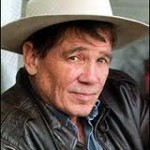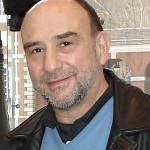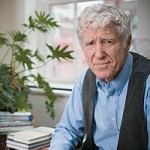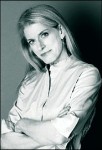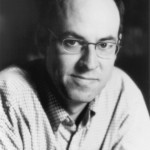In September 2010, Writers Voice host Francesca Rheannon interviewed Damion Searls, translator, and Marita Keilson-Lauritz about Hans Keilson’s novella COMEDY IN A MINOR KEY. Marita Keilson, Hans Keilson’s wife, recounted a story that connected Keilson’s work in the Dutch resistance to Francesca’s father’s own wartime history underground in Amsterdam during the war.
Her father, Guido Teunissen, hid Claus Bock, then a teenage German Jewish refugee, in his apartment from 1942 to 1945. He was a member of an underground group headed by his downstairs neighbor, Wolfgang Frommel. They lived in a house on the Herengracht Canal in Amsterdam’s old city.
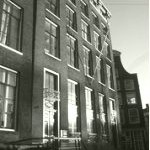
During the war, Hans Keilson, a Jew who had fled the Nazis from his native Berlin and then had to go underground when the Germans invaded Holland, worked in the Dutch Resistance as a “troubleshooter.” One difficult situation arose when a mentally disturbed Jewish teenager in hiding, Torry Goldstern, began acting so bizarrely that he put his host family (and himself) at risk. The Dutch Resistance was considering having him killed, as too much of a security risk. As Marita Keilson tells the story in in her interview with WV, Hans Keilson arranged for Torry Goldstern go first into a mental institution, and then, when he was discovered to be a Jew, to stay with Frommel’s underground group, called Castrum Peregrini, in the house on the Herengracht.
In the following excerpt (translated from the German by Francesca Rheannon), Bock writes about Goldstern in his war memoir, Untergetaucht Unter Freunden: Ein Bericht. Amsterdam 1942-1945 [Hiding With Friends: A Report, Amsterdam 1942-1945], published by Castrum Peregrini Presse. Hans Keilson is referred to as “the psychiatric expert for the Resistance.”
MAY 1945. TORRY GOLDSTERN
At the end of February 1945, the Red Cross began distributing white bread. The flour came from neutral Sweden and was intended for the population in western Holland. But for fifteen thousand people it came too late: the death toll had been rising rapidly and there was not a coffin to be had.
The second stage of the liberation cut off Amsterdam’s vital links across the Ijsselmeer. Provisions such a potatoes and root vegetables from Holland’s eastern provinces—Gronigen, Drente, and Friesland—came to a halt. By April the municipal canteens had nothing to cook. And no fuel. The city’s water supply was threatened. Then, on April 30th, and with German acquiescence, Allied planes dropped the first food parcels.
We were poor. We were on the fringe. We were not involved in active resistance. The space in which our lives had been played out for years was small, but the people in it — and towards the end, of necessity, there were more and more — formed a unity in which selfishness, envy and expressions of jealousy had been conquered, along with the ever-to-be-feared mental breakdown. With the strain of the war lifted, appearances changed, though the substance remained the same. A younger generation took over what we had learned and proven. New circles formed around the center.
… As we began to reflect, everything was already behind us. On the evening of May 4th, we were dancing in the streets. The city was in a mood of ecstatic joy. However, still there were some tragic incidents: a few German soldiers barricaded themselves into the “Grote Club” building next to the Royal Palace and began to shoot.
Torry Goldstern wanted to go out and join the crowds, too. Torry was a German-Jewish boy. His father was dead, his mother in Auschwitz. Years of hiding with ever-changing families, at more than twenty different addresses, had reduced him to a psychological wreck. In one refuge, that of Hans Roduin, the owner of the second-hand bookshop, De Eendt, Torry had put up pictures of Hitler and alarmed his protector by giving vent to violent anti-Semitic outbursts. Representatives of the Dutch Resistance were already considering measures to deal with this dangerous fugitive. But was Torry really mad? Roduin asked Frommel’s advice. The psychiatric expert for the Resistance was also consulted.
Torry was taken to the so-called “Pavillion Three”, the plsychiatric ward of Amsterdam’s Wilhelmina Hospital. Wolfgang didn’t want to throw in the towel; he wanted somehow to keep in contact with the boy. He went to the hospital, and, as a German, was allowed in. A warden sat in the middle of a darkened room with a long stick that he used to keep control over the patients. There were about twenty of them in the room. Torry was sitting on a child’s cot, restrained in a straight-jacket, and banging his forehead bloody on the rail. The scars were visible for a long time. Wolfgang tried giving him food in a jam-jar, but in his greed, Torry smeared the pease-pudding over his face and messed up his bed. Would he be permitted to bring the boy any more food? The doctors believed Torry was a hopeless case. The diagnosis was schizophrenia.
Torry had been admitted to the hospital with forged papers. But one day his true background came to light. Would the Germans let him live? Wolfgang thought he should taken into the Herengracht, where he would be safe. GisÁ¨le, magnificent as ever, agreed. When Torry insisted that the houses opposite had changed overnight, Wolfgang encouraged him to draw their fronts; the next morning these drawings were used to counteract his delusions. But what was GisÁ¨le to do when Torry came at her with a knife? He approached, silent and threatening, stood very close to her, and then asked in a soft childish whisper, “May I have a slice of bread?” One day, people gathered in the street staring up at our house and pointing excitedly. Horrified, Buri noticed it from the window. Torry was standing in the gutter of the parapet. Was this another suicide attempt? Should we call out to him, or would he fall from there like a sleepwalker? Wolfgang raced up the stairs and succeeded in enticing Torry back through the attic window with a piece of bread.
Torry stayed at the Herengracht until mid-July of 1945. Then he went to live with some peasants in the country. Wolfgang had the idea that he should sleep in a cowshed for a while, between the warm, heavy bodies of the cows. This therapy, more or less, did indeed cure him for years. When his mother returned alive from Auschwitz, Torry was able to go and live with her. He went to school and later worked in a newsagent’s in the Kalverstraat. He survived the war by almost thirty years. In September 1974, at the age of 47, he committed suicide.
But on the day the war ended, Torry wanted to go down into the streets. It was not safe to let him out alone amidst the tumult of liberated Amsterdam, so Wolfgang went with him. Torry was determined to roam, unsupervised. Wolfgang ran after him, caught him, and rebuked him for being so unruly. Torry started to wail in German, “Please, for God’s sake, don’t take me back to my cell.” He meant the isolation cell in the psychiatric ward, but people were stopping and asking what was going on. Wolfgang tried to explain. His accent marked him as a German, and people began to get angry. “This Kraut here has had a Jewish child in a prison cell and is trying to drag him back there! Free the child! Knock the Nazi down!”
Without quickening his pace, Wolfgang entered a side street holding Torry by the hand. Angry threats pursued them, but no one actually dared to attack Wolfgang. His black beret, his dark high-collared coat, his black walking stick — it was all a bit uncanny. Torry trotted beside him, pale and expressionless. It was like a scene in a medieval town: a sorcerer leading a lost soul away. As they came from the Beulingstraat into the Herengracht, an agitated fellow leapt on Wolfgang and knocked him down with a blow from his fist. In the tumult, Torry got away. “Throw the damned Kraut into the canal!” Wolfgang, who had risked his life for this Jewish boy, was about to be lynched on his account — and by the ordinary people of Amsterdam on whose side he had been throughout the war!
But as the guys were about to throw him into the water, Wolfgang became aware of his body lying on the ground. He threw off his attacker as if he were a small dog and raced into our house, the door of which Buri had opened. A crowd now stood outside. Things began to look ominous. At that moment, GisÁ¨le arrived back after having pushed Guido’s very pregnant wife Miep to the hospital in a handcart. She was alarmed by the crowd. Had Torry jumped from the roof? At the door Wolfgang briefly explained the incident. GisÁ¨le rushed back out again. From the top of the steps, she made an impassioned speech in Wolfgang’s defense — a second Joan of Arc. By this time, some of our neighbors had joined the crowd. They called out how right GisÁ¨le was, and how absurd it was to abuse the German poet. The crowd melted away.

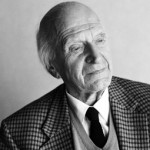
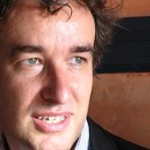

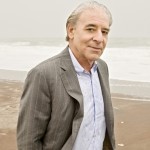
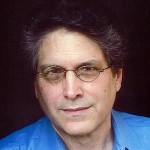
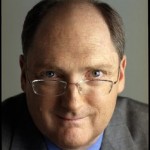
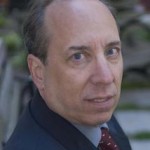 Harvey Sachs
Harvey Sachs